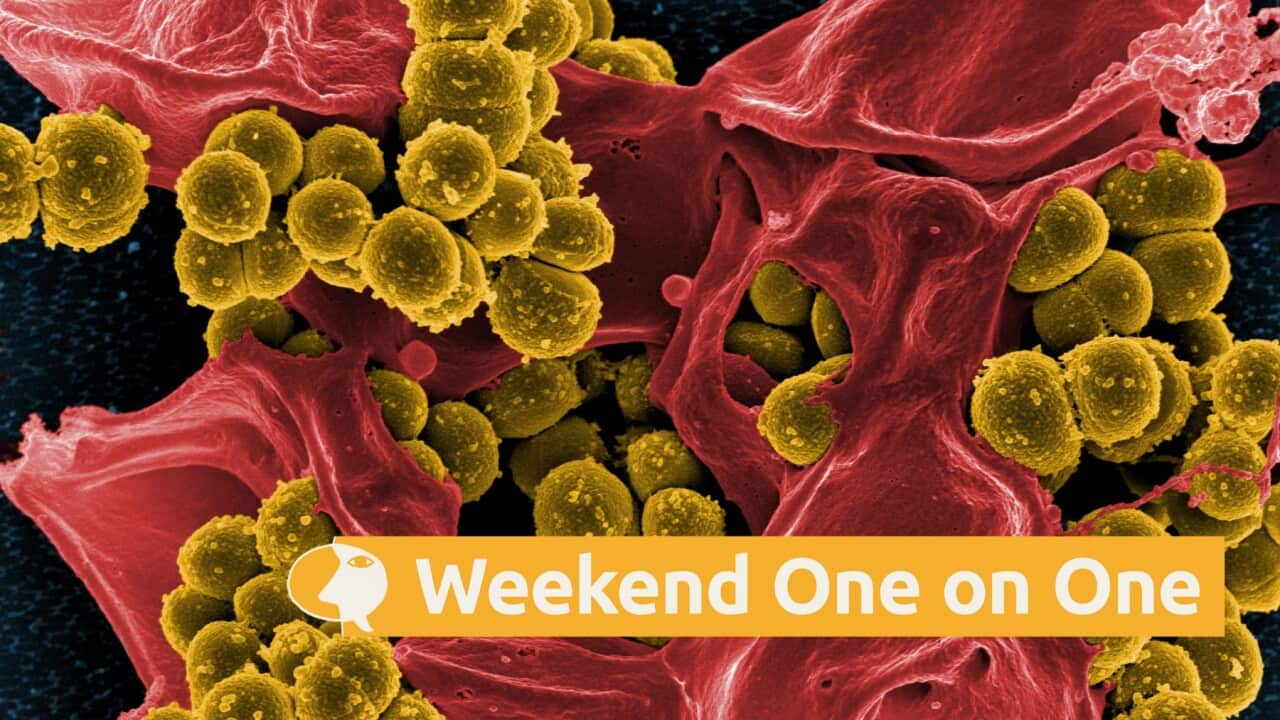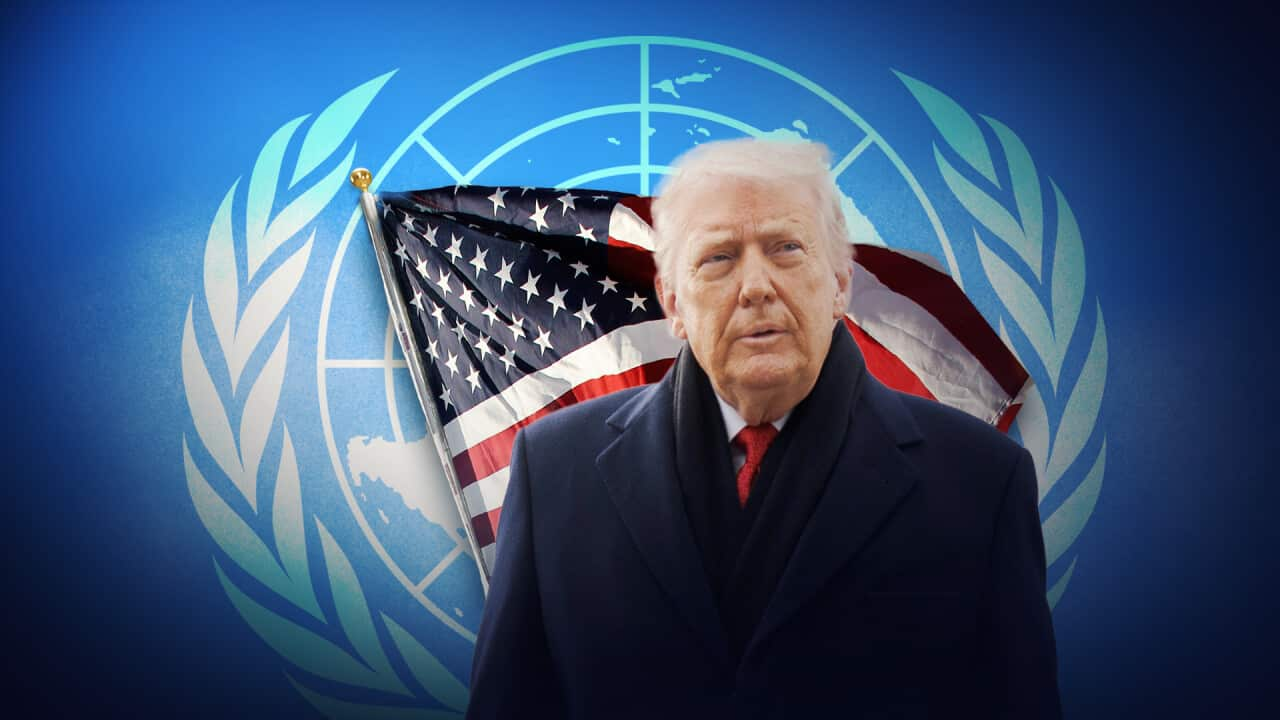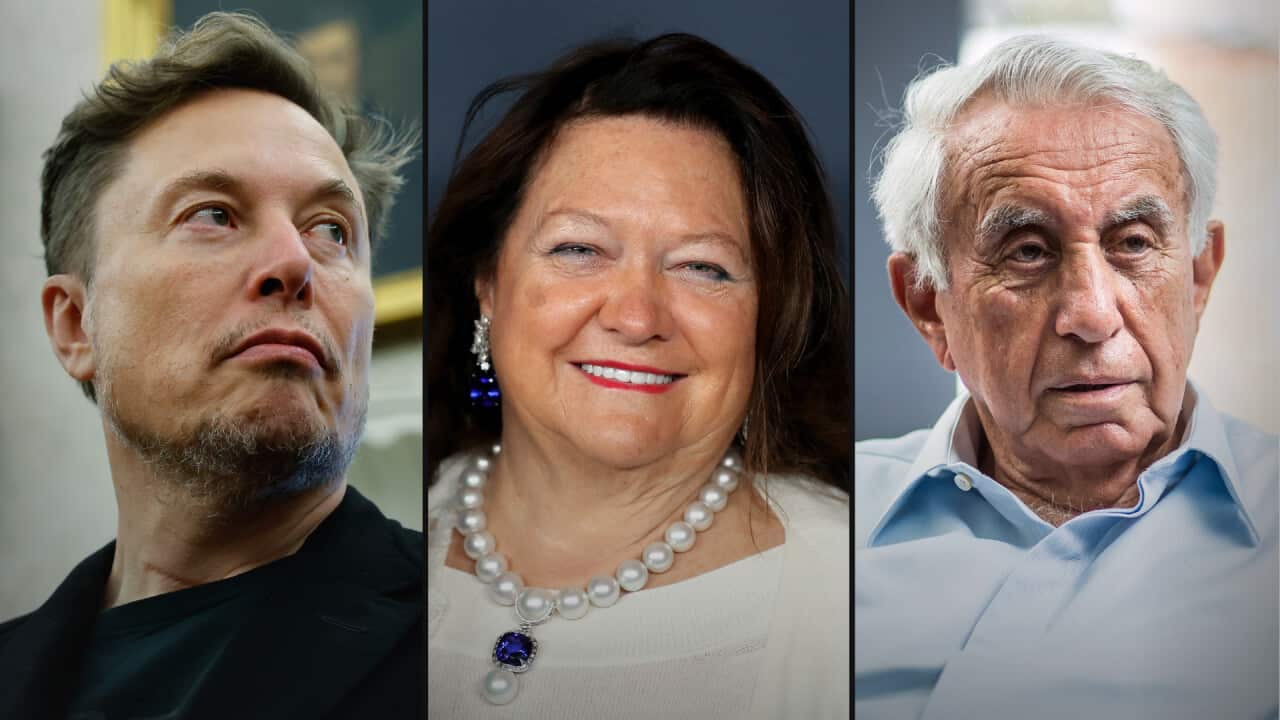Listen to Australian and world news, and follow trending topics with SBS News Podcasts.
TRANSCRIPT:
"We often refer to as dementia as with a cognitive decline, we talk about memory, but for me it was much more than that. I really found that my concept of self, who I really thought I was as a person, was just completely taken away from me."
That's the voice of Bill Yeates, Alzheimers Disease International's board member with lived experience of the illness.
He was diagnosed with early onset Alzheimers in 2019, when he was 59 years old.
Alzheimer disease is the most common form of dementia: it affects your memory and thinking, and can progress to affect daily activities and functions.
"So being diagnosed under the age of 65, you're still working, you still have a young family, you're financially earning an income, you've got dreams, you've got aspirations. And that all coupled together for me, it just destroyed my whole thought on where I was going in my life. That's why I sort of say it was devastating."
After his diagnosis, Bill searched for programs that would help him manage his disease, but found few services were available.
Alongside the medical support he received from doctors, he decided to develop his own framework to help him live well with dementia.
He calls it the 'Tree of Awakening your Positivity'.
It includes setting small, achievable goals around staying physically active, eating well, exercising his body and mind and staying socially engaged.
"I've been doing this for nearly five years now. So it's been a long time and I think it's made a massive difference in my life, not just probably me as a person, actually I don't think I'm the same person I was way back in 2019. I actually think I'm a better person, just about my view on life and everything."
Bill is among 400,000 Australians living with dementia, and with a growing and aging population, this number is expected to double by 2050.
Professor Henry Brodaty is the Co-Director of the University of New South Wales’s Centre for Healthy Brain Ageing (CHeBA).
In an address to the National Press Club in Canberra, he has said that the disease presents both a health and economic crisis for Australia, and a new approach is therefore necessary.
"We need the slip, slop, slap of brain health - now. And hope for research. Funding for dementia has lagged behind cancer and heart disease, even though it contributes more to disease burden. Research is critical to find the best ways to provide services."
The Centre for Healthy Brain and Ageing published results from the world’s largest online dementia prevention program trial earlier this year.
The program, called 'Maintain Your Brain', studied the impact of personalised online coaching in physical activity, nutrition, cognitive training, and mental health on dementia risk and progression.
It found that after three years, those who received this support showed significant improvements in cognitive performance and greater reductions in dementia risk, compared to those who received general health information alone.
Mr Brodaty says more funding is essential to ensure research like this can translate to new, effective dementia prevention and management programs.
"There's now a new paradigm - re-ablement. It's like rehabilitation. It means enabling people with dementia to be able to live positively for many years. I'm not being Pollyanna about this. I know in the later years, that's difficult. But for many years, people can live well and maximise their abilities and enjoy their lives for longer. There are programs that exist, but they're sparse. And funding is lacking."
Dementia Australia is one organisation working to address gaps in dementia support for vulnerable communities.
The organisation has launched the second edition of its Diversity Small Grant program, helping community organisations build awareness and understanding of dementia in Aboriginal, Torres Strait Islander and culturally and linguistically diverse communities.
Nigel McPaul is Dementia Australia's General Manager of Monitoring, Evaluation and Development.
"Aboriginal and Torres Strait Islander of People, the dementia prevalence rate among that community are approximately three to five times higher than that of the general Australian population. And at least 28% of people living with dementia in Australia were born in a non-English speaking country. So we recognise there's a need in this group."
He says both groups are faced with more barriers to accessing dementia care, prevention and management programs than the general population.
"And we can say this pretty simply in any language, navigating dementia and aged care support can be complex and often confusing. So when you add on that cultural and language barrier over the top of that, it becomes even more challenging to navigate. One of the other things that we've learned is that the term dementia is often met with stigma in culturally and linguistically diverse communities, which can lead to people living with dementia to feel socially isolated."
Mr McPaul says the experience of social isolation has been shown to worsen the symptoms and progression of cognitive impairment.
It's one of the reasons he believes community led programs are so important - as a way to build awareness around dementia, learn about risk reduction and management, and nurture community and connection.
"So making sure that's dementia-friendly, that people cannot be afraid to ask questions about dementia. They've got a place to go to speak to someone about those things."
For Bill, staying socially connected is one of the things that has helped with managing his Alzheimer's the most.
He says while his own approach keeps him physically and mentally active, healthy, and connected with friends, lack of services to help people to live well with the disease highlights a significant missed opportunity.
"Not enough money has been given to do the research to find out what works. And you have little pockets throughout the world who are doing things, trialing things. And what we need to do is bring it all together and say, look, Netherlands have found this and Australia has found this and start helping people."













